|
Getting your Trinity Audio player ready...
|
The latest of the Thailand Coups in May 2014 saw South-East Asia witness the most recent of nineteen coups in Thailand since 1932.
It had been eight years since the previous military coup in Thailand happened in 2006, which was largely unopposed. Many of the events that followed have not allayed the protestations and it has taken a long time to maintain stability in the country, as this time pro-government opposition was strong.
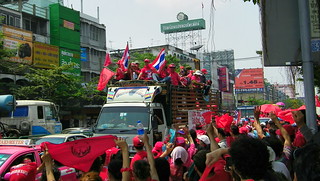
The Army seized power without warning, despite saying they had no intention of doing so. They cut off communications for a while and took control under the Thai Coup d’etat.
They shut down television temporarily, and the people had no idea what was happening. Many feared they would close other communications, like social media.
Thailand Coups
The 2014 Thai Coup d’etat was necessary to ensure protests didn’t get out of hand. In that regard the Military succeeded and can claim it was successful. But returning Thailand to the people was a greater challenge. And there was more to come as the new Prime Minsiter of Thailand kept a grip on power.
Events unfold as the Military impose a curfew
As the Military took control, a curfew soon followed. Between 10pm and 5am no-one was allowed outside their homes. Businesses that relied on evening trade were hit hardest. Bars, clubs, and restaurants suffered and tourists were bemused and upset.
The Guardian reported the Army Chief said life will continue as normal and the army will take care of the foreigners, and foreign embassies, currently in Thailand. No-one knew what that meant but hoped he would be true to his word and the disruption wouldn’t last too long.
Thais were laid-back as usual. They had seen many coups in Thailand before.
But expats like myself hadn’t, and we weren’t so relaxed. No-one was confident, but there was nothing we could do.
A line of army soldiers, Military Police and Royal Thai Police with riot shields, stood guard at the west side of Chiang Mai’s Naowarat bridge. They faced an assembly of onlookers and a few “Red Shirts”, after “Red Shirt” protesters started fires at the residence of the governor of Chiang Mai and on both sides of Naowarat bridge.
.jpg)
After Thailand’s King Bhumibol approved the 2014 Thai Coup d’etat
General Prayuth Chan-0cha became Prime Minister of Thailand
On Monday 26th May 2014, King Bhumibol Adulyadej approved the 2014 Thai Coup d’etat in a Royal ceremony. General Prayuth Chan-0cha took over as Prime Minister of Thailand.
He was given formal approval by King Bhumibol Adulyadej to establish an interim constitution and to govern Thailand.
Former Prime Minister Yingluk Shinawatra was released from detention
General Prayuth Chan-0cha suspended the constitution, and former Prime Minister Yingluk Shinawatra was released from detention. She was ordered not to involve herself in political activity or leave Thailand without permission as King Bhumibol approved the Coup.
More than 100 people were detained by the Military
The Guardian reported over 100 people remained in military detention. Some of us presumed it was an effort by the General to suppress opposition to the Coup. Although there was a ban on anti-coup gatherings of over five people, some protesters defied it in Bangkok, and protests continued there. An increase in the number of people on the streets put soldiers in a difficult position, but the Army kept cool and resisted enforcing the ban.
Protesters showed their anger
Thousands came out in protest against the coup around the Country. And in places like Chiang Mai (North), Pattaya and Khon Kaen (North-East) they did not give up meekly. But there were relatively few who weren’t prepared to allow time for cooling down. Because of the ten-year Islamic insurgency in the South, unrest continued there. And on the Saturday following the Thai Coup d’état ten bombs exploded, killing three people and injuring sixty-three others.
The new Prime Minister of Thailand stabilised the country
General Prayuth Chan-0cha made necessary changes, after King Bhumibol approved the latest of military coups in Thailand Coup, enabling the Thailand Junta to control the Country.
At that point, the Prime Minister of Thailand had not dissolved the Senate, the lower House of Parliament, and suspended the Constitution. But new laws, which the Thailand Junta deemed necessary, did not have to be approved by parliament. The Chief of Police was dismissed, and activists, editors of newspapers and journalists were ordered to report to the Army.
Despite concerns, it appeared the General was doing everything to stabilise the situation as quickly as he could.
Phuket beaches returned to nature in a shock move
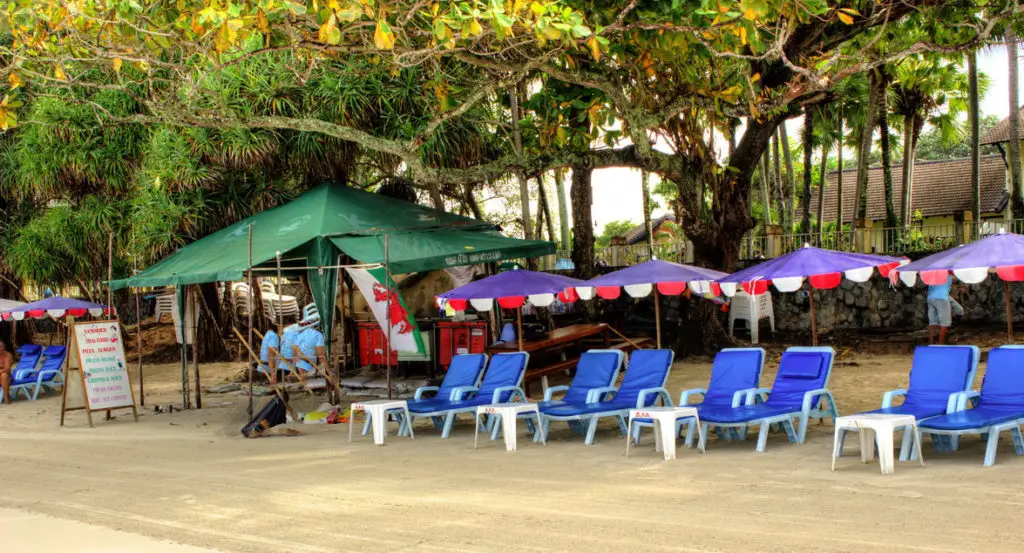
A massive clean-up operation, by the ruling Military, in June and July of 2014 saw Phuket beaches return to nature in a move that shocked everyone. The Military targeted traders who encroached on the beaches and private profiteering from stands they built on public property. Whether it was to be a temporary measure, or a permanent move, remained to be seen.
Kata Beach became just a beach again – in one day
I stood aghast as trucks of Soldiers and busloads of Police emptied on the beach road early in the morning.
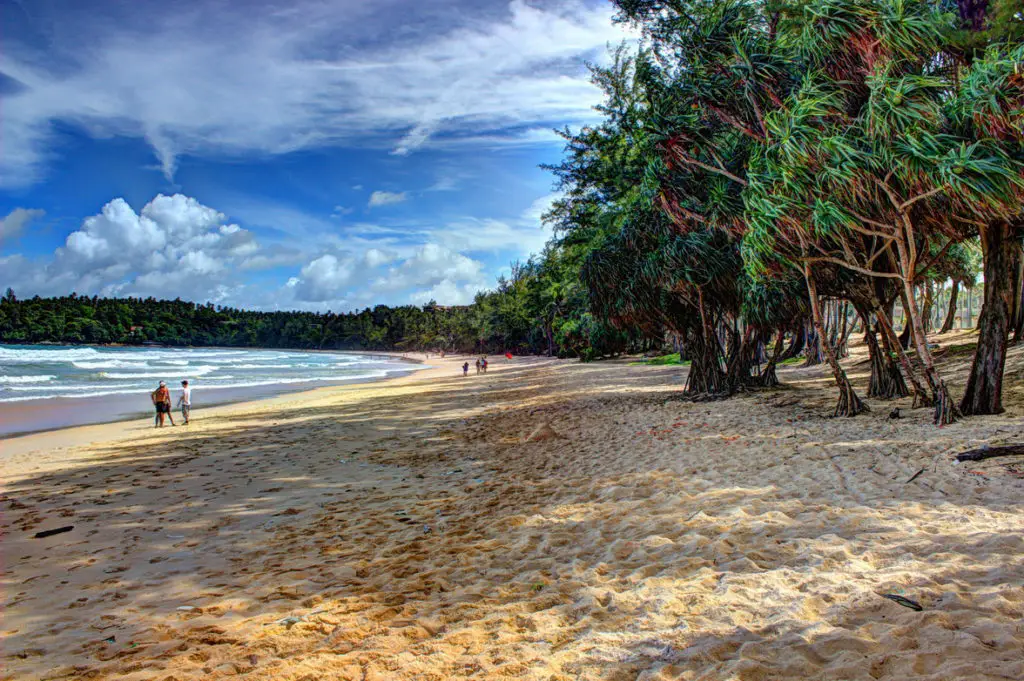
Gone in a flash were the Beach Bars, the Massage tents, the Sun Loungers, the Surf Boards and the Jet Skis for hire.
Kata Beach was cleared on the 4th of July and so, ironically, regained its independence in one day. There were still some bits and pieces of demolished structures lying around, but they cleared them away in a few days.
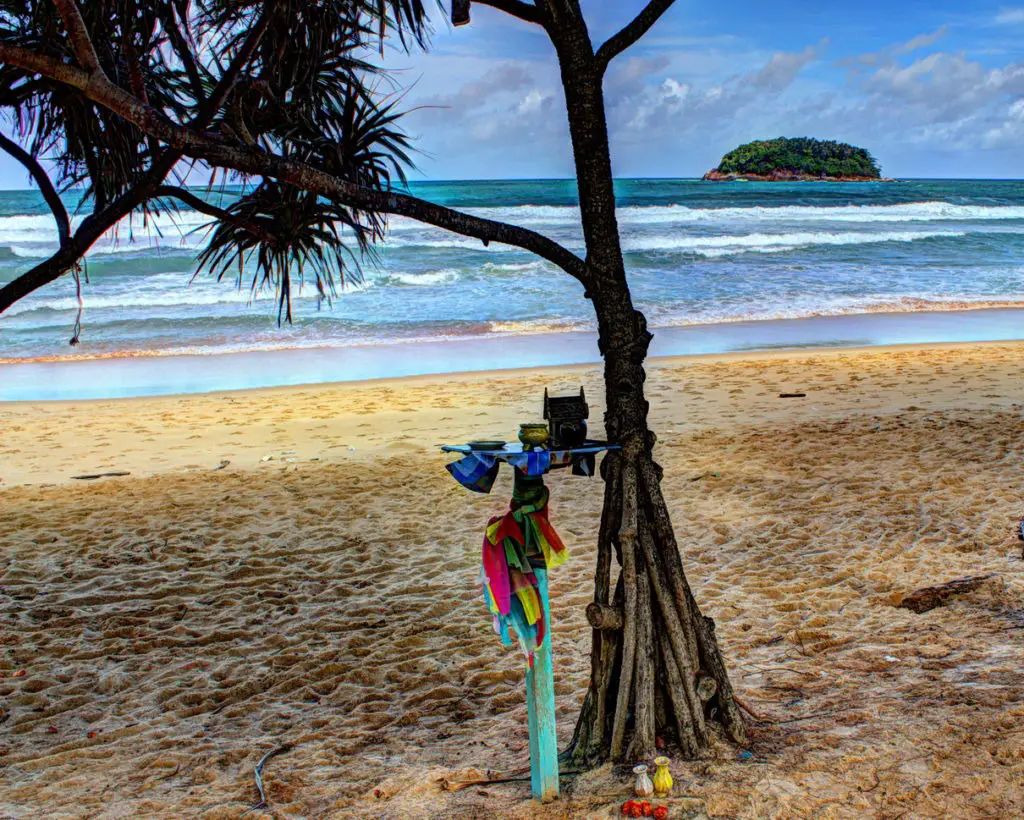
My First time at Kata Beach
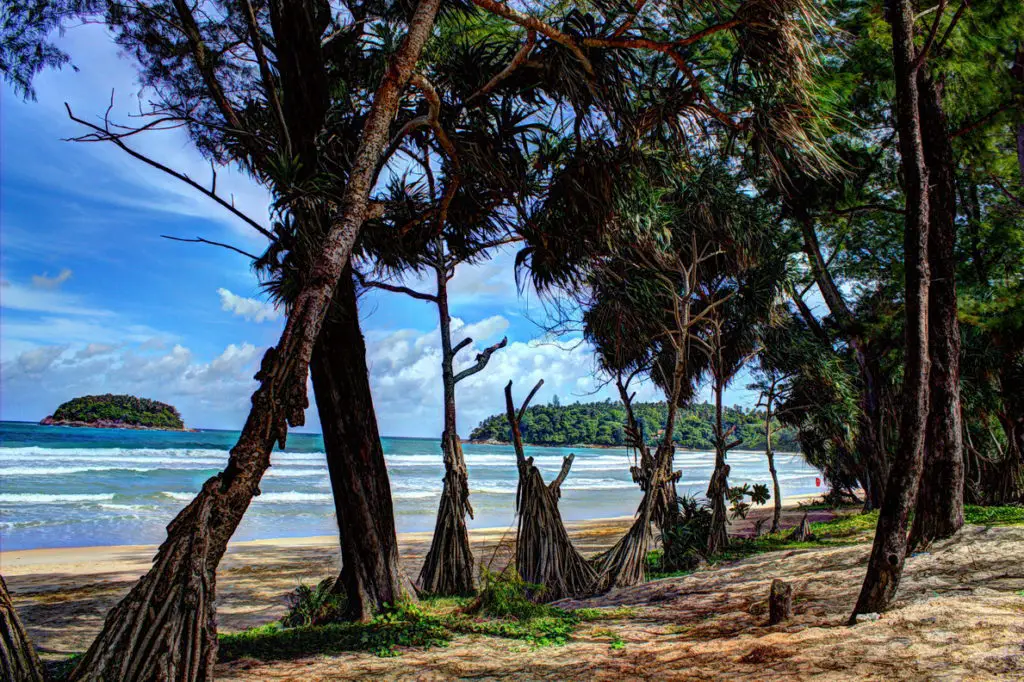
My first visit to Kata Beach was in 2006. But until 2014, I could only imagine how it must have looked thirty years earlier. I enjoyed early morning walks on the beach but that day it was extra special. I rushed home to fetch my camera, so I could record the historic occasion. And I witnessed, first-hand, Thailand’s beaches as they returned to nature.
I was sure many tourists would bemoan the loss of beach amenities. But for nature lovers, it was a joy to be able to walk in natural surroundings once more.
They also cleared Karon Beach and Patong Beach
The next two beaches going north, which were as busy as Kata Beach, were soon cleared as well. Karon Beach joined Kata Beach and Patong Beach, which was the busiest place on Koh Phuket.
It was a massively efficient exercise, without warning, which shocked the locals and left many families without a livelihood. Whatever the motive for the clamp-down, It seemed an extremely harsh show of intent without prior notice, considering previous governments had tolerated it for years without imposing penalties.
Some people were happy, and some were not
Some people argued, ‘But we can’t buy beer and food on the beach, hire a sun lounger and roast all day long.’
Others said, ‘Yipee. We don’t have to trample through your empty beer bottles and food cartons any more. Then watch them being washed out to sea and dumped on another beach, while you are flying home.’
There are always pros and cons and it was not clear what the future held for Thailand’s beaches and beach life. But I enjoyed it while it lasted. Back to nature again – for how long?
King Bhumibol dies while the Military are in control.
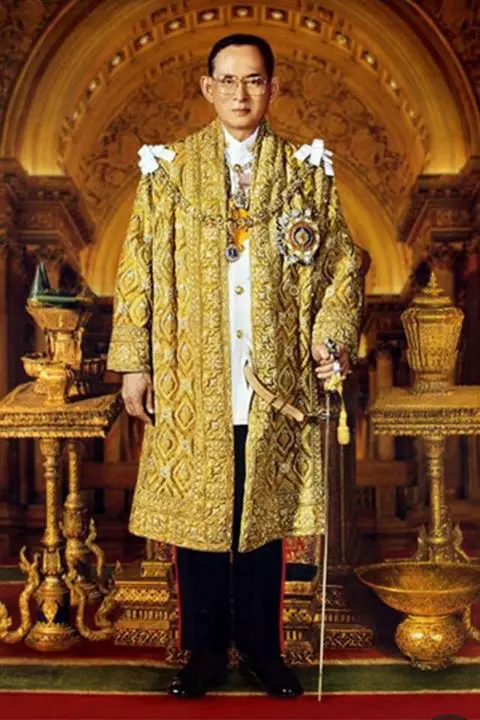
King Bhumibol was in ill health and was hospitalised many times before he died on 13 October 2016, while the Military were still in power. He had reigned since 9 June 1946 and was revered by the people. The country was pre-occupied with a year of morning before he was cremated on 26 October 2017 at Sanam Luang. His son, Maha Vajiralongkorn succeeded him as King.
Views on the Coup differed widely, as the years passed by
Views and opinions differed widely after the King approved the Coup. And it was far from clear what the Prime Minister of Thailand, General Prayuth Chan-0cha’s intentions were at that stage.
People believed the economy would take a further knock, as it had done when the previous government failed to pay farmers under a rice subsidy scheme. The Thailand Junta said it would honour the commitment by paying the farmers by the end of June, which they did.
It was an obvious way to pacify the farmers, as most were supporters of the deposed Yingluck Shinawatra government.
When the General had the situation under control, he lifted the curfew and daily life returned to normal quickly. However, it appeared major changes would have to be made before General Prayuth Chan-0cha, now the Prime Minister of Thailand was prepared to return power to the people.
It proved to be a long wait as another crisis struck
The people hoped it would not be too long. But it proved to be a long wait and they were still waiting seven years later, as military rule became the norm and COVID19 decimated Thailand’s tourist industry in 2020.
Could there be a Thailand civil war?
It is a terrible thought. But the fact that Thais were talking about the possibility of ‘civil war’ after the 2014 coup, was of grave concern. Thailand’s politics were a mess, and there is a history of military coups in Thailand; 19 in all since 1932. The people, generally, don’t seem too fazed about the Military stepping in from time to time to stabilise insurrection. It has happened frequently, and is preferable to violence, and as history shows, has, as a temporary measure, proved to be successful.
But the 2014 Coup has left Thailand under military rule much longer than expected. Thais have a habit of keeping their innermost thoughts and feelings to themselves, and the culture dictates people don’t express their true feelings in public. So, beware complacency.
What happened after the Thai Coup d’etat of 2014?
Shortly after the Thai Coup d’etat of 2014, people in Phuket, where I was living at the time, were carrying on as normal. A friend in Chiang Mai, told me it was much the same there, but it was unstable in Bangkok. People who were picking up information on social media, as the TV was blocked at the time, continued to comply with the curfew between 10pm and 5am.
I was up early every morning. And the only difference I noticed was that the 7-Eleven’s were closed. I looked for soldiers, but there was no military presence in the South of Koh Phuket.
Why the haste in instigating the Coup?
Thailand’s Army Chief, General Prayuth Chan-Ocha declared Martial Law on a Tuesday. Then he brought the political parties together to find a solution before instigating a Coup.
But he only allowed two days. So, what was the hurry? I could only surmise that it was a symbolic gesture, and that he already intended to enforce the Coup, regardless of the outcome of the meeting.
And he did.
A line of army soldiers, Thai Military Police and Royal Thai Police with riot shields, stand guard at the west side of Chiang Mai’s Naowarat bridge facing an assembly of onlookers and a few “red shirts” after “red shirt” protesters had started fires at the residence of the governor of Chiang Mai and on both sides of Naowarat bridge. (Photo credit: Wikipedia)
Lack of information
The only information we could get was via the internet as all the TV and radio stations were shut down. It appeared the politicians who were detained by the Army when the Coup was announced, were in detention. BBC News Asia did what they could to keep us informed. Here’s what they said.
A warning of Civil War
The Coup in 2006 was largely unopposed. This time the government supporters (Red Shirts) warned of possible confrontation and even ‘civil war’ if democracy was not restored quickly and early elections were not held.
It may have been a veiled threat, but I was not surprised.
Following the disruption of elections in February 2014, I talked with several well-informed Thai’s in the North, and asked what they thought. Some of them believed ‘civil war’ was a possibility and a serious threat this time around.
It was tense and we all hoped that common sense would prevail, and order would be restored, so that the people of Thailand could continue to live in peace.
Is Thailand moving towards unity?
The Prime Minister vows to keep Thais happy, unified and prosperous.
The Prime Minister said that he will listen to the voices of the people and dedicate his government to eradicating corruption, reducing inequality and elevating the welfare of the people.
He also expressed his intention to provide opportunities for the younger generation to participate in national development to keep up with the digital era.
Thai PBS World – June 11 2019
In the interests of National harmony, Thailand’s Internal Security Operation Command (ISOC) set up reform centres across the Country. By doing it, they hoped to see Thailand moving towards unity and peaceful co-existence, despite differences of opinion.
Have the Thailand Junta helped Thailand move towards unity?
If the Prime Minister’s words were to be believed, I saw it as a major move in the right direction by the Thailand Junta and a positive step in moving towards unity.
Several hardcore red shirts caved in to the military’s request for them to cease political activities. But they cast doubts over the Thailand Junta’s plan to stamp out colour-coded politics.
Despite initial opposition to the Military Coup, General Prayuth Chan-Ocha restored order much quicker than many expected. The general response was one of acceptance for the necessity of Military intervention as an interim measure. The curfew was relaxed to only 4 hours in 24, between midnight and 4am, and, as calm continued, it was lifted completely in a short time.
Facebook panic short-lived
On the afternoon of Wednesday 28th May 2014, some people thought they were witnessing ‘the end of the world’. They were unable to reach out via their beloved social networking lifeline Facebook, reported as a ‘technical hitch’ in the gateway. Many saw it as censorship. Far from being dismayed, I was only too pleased to be rid of the invasive monster for, what turned out to be, less than an hour.
What would we do without Facebook? What would we do without that postmodern plaything that assists our pre-modern instinct — the instinct to speak our mind? The hypothetical question became reality on…
Freedom of speech is fundamental to democracy and a basic human right. However, it is often necessary, in a situation like this, to quell potential incitement by irresponsible voices. The modern media, including social media, are powerful instant methods of communication. Therefore temporary censorship is inevitable, and should be expected as a reasonable tool in the restoration of calm and order.
Thai PM appeals for unity amid almost daily protests
“I am now appealing to every Thai citizen, reaching out to you directly to please say no to the politics of hate and division and to the politics that spreads the disease of tribalism of belief versus belief, or young versus old, or rich versus poor,” Prayuth said.
“The future belongs to the young… let the young lead the way and provide the moral leadership to show us all how to take the hard path of collaboration with people who may disagree with us during times of national hardship.”
Reuters – August 13 2020
Final Thoughts
It has taken a long time under military rule. Life goes on, but the jury is still out, and the question still remains.
Was the 2014 Thai Coup d’état successful and Is Thailand moving towards unity?

